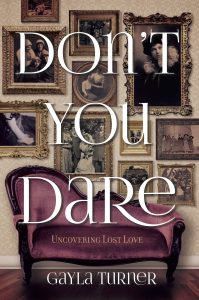I began researching the pictures [from my grandmother], matching the people and events in the photos with those chronicled in the archived local newspapers, familiar names and places started to emerge. I concluded that there were not just one or two different women involved, but rather a larger group of women who had found a way to connect with each other in the middle of farm country. But I kept asking myself, “How and why Amherst, Wisconsin?”
I started to imagine how difficult it must have been for anyone back then to love someone of the same sex, and couldn’t help comparing my grandma’s life to my own. When I came out in the late 80s, it was difficult to know who to trust because of the stigma associated with being gay, even though coming out in a city like Los Angeles was far less dangerous than in other parts of the country.
Growing up, I didn’t know anyone who was openly gay or lesbian, although the two women who lived across the street were rumored to be more than just friends. People would refer to them as “those lesbos” or “dykes.” I’d laugh at the snide comments, but inside I wanted to run and hide from the world. By that time I had already had my share of schoolgirl crushes on female teachers, and I knew I was one too.
Already painfully shy, I became even more withdrawn for fear that some of the negative slurs my friends used would be directed toward me. Keeping people at arm’s length was my way of safeguarding my secret from the world.
Then it happened. When I was nineteen years old, I played guitar in a band in college, and I fell in love with the lead singer, Norma. It was like nothing I had ever felt before. I knew then that that was what falling in love should feel like. Mind you, falling in love with Norma did not change who I was: it simply reaffirmed my sexual orientation. However, as beautiful, natural, and wonderful as it was… I was petrified.
The fear became very real when I found myself looking over the Palos Verdes cliffs and watching the waves crash below. I don’t remember driving there, but I do recall thinking how easy it would be to take those two steps forward and end my fear forever. It was at that point that it occurred to me I did not have a choice about who I loved, but I did have a choice about which direction those next two steps would take me in. I took two steps backward, turned around and retrieved the camera from my car. After taking a couple of pictures, I left the cliffs and never returned.
I tried to explain that to my mom when I broke the news about being a lesbian, but she was too upset to hear it. She asked me several times, “How could this have happened?” I didn’t have an answer for her then, and I still wouldn’t. There was never an outside influence in my life, one way or the other, that caused me to be a lesbian. There was no magical date or event in my life calendar that I could point to and say, “Yep, that’s when I became a lesbian.” It is simply a part of who I am.
Of course my inquisitive, well-meaning heterosexual friends would inevitably ask ‘that’ question: “When did you know you were gay?”
I would shrug and pretend to search for the magical date and time to give them, but honestly I’ve always known. I tried putting things in perspective by asking them, “When did you know you were straight?”
After I watched them struggle with that equally irrelevant question for a while, I could almost see the light bulb go on over their head. That’s when I knew they understood. We are all simply who we are, and love is not a matter of choice.
I’ve always been extremely grateful for being loved and accepted by my family and friends. Some of my LGBTQ (lesbian, gay, bisexual, transgender, queer/questioning) friends were not so lucky. It was common to hear about people who were kicked out of their homes by parents who refused to accept them for who they loved. Some, but not all, fell into the darkness of depression, drug abuse, or alcoholism.
Although society has become more accepting, sadly the percentage of homeless and runaway youth who identify as LGBTQ remains extremely high in America.
However, even with all the love and support of my family and friends, I always felt like the ‘square peg.’ I think that’s why finding my grandma’s photos had such a profound effect on me. Because regardless of how loved and supported someone feels, when you are young, being different is very difficult, especially when it comes to one’s sexuality.
I still have the photos I took when I was nineteen, overlooking the Palos Verde cliffs. Sometimes I look at them to remind myself how beautiful life is.
Excerpted from Don’t You Dare: Uncovering Lost Love by Gayla Turner. Copyright ©2021 by Gayla Turner. Reprinted with permission of Gayla Turner. All rights reserved.

